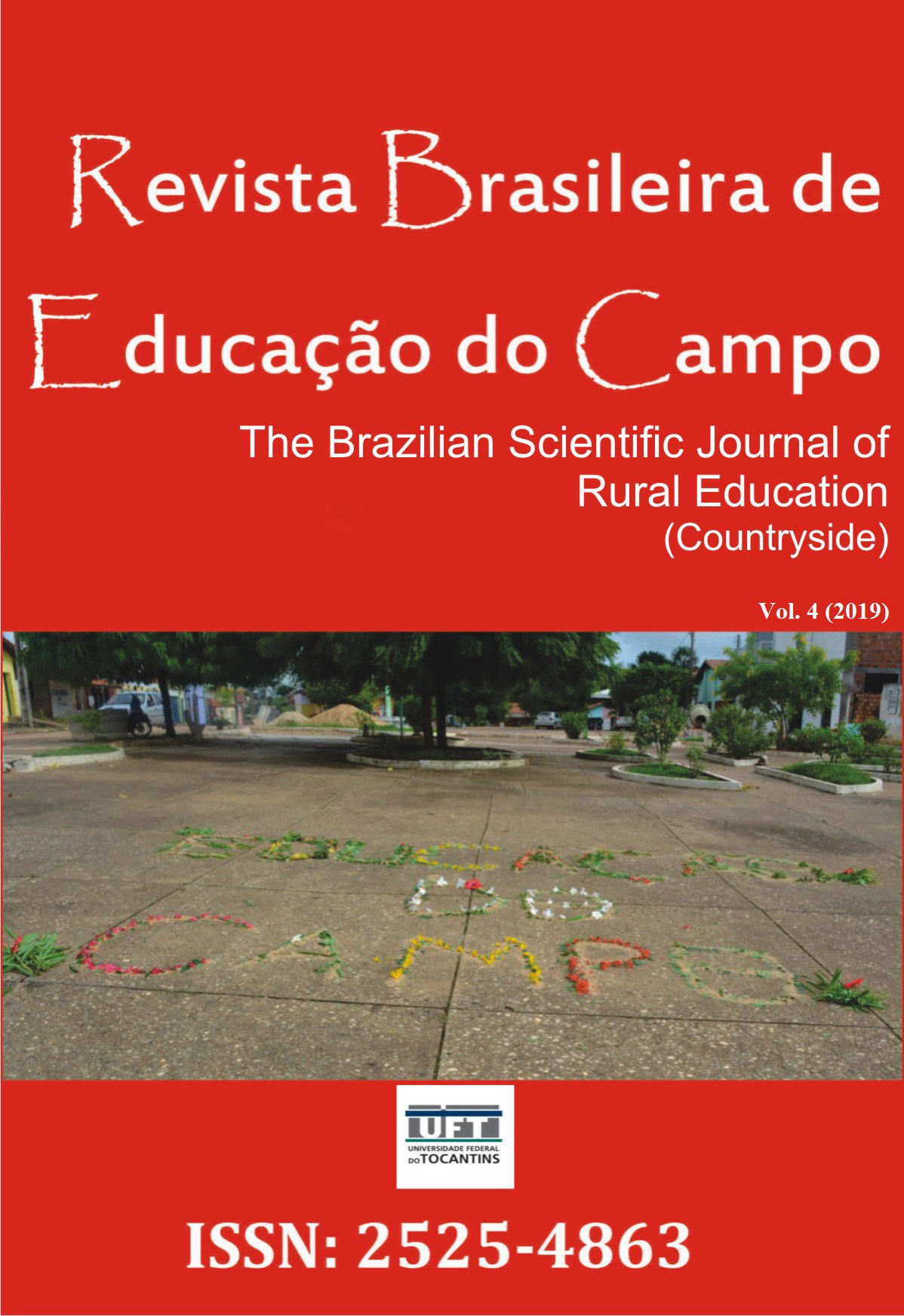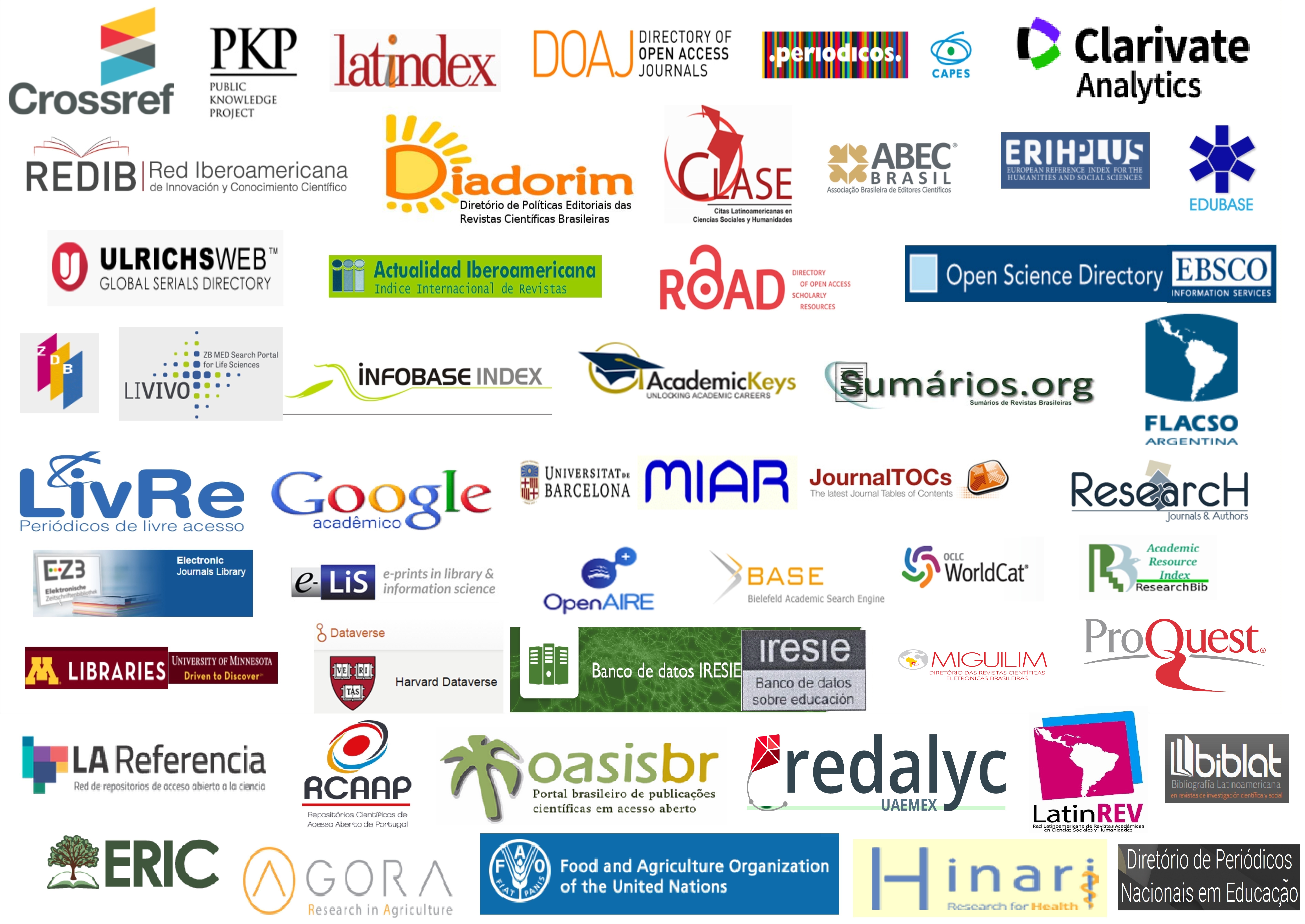Narrativas ficcionais - potenciais pedagógicos, estético e literário para a formação do aluno no espaço escolar
DOI:
https://doi.org/10.20873/uft.rbec.v4e5813Resumo
O presente trabalho tem como objetivo elaborar estratégias de estímulo à leitura com ações que envolvem narrativas ficcionais de forma dinâmica, prazerosa e divertida junto a alunos dos anos finais do Ensino Fundamental da Escola Fé em Deus localizada em Rio Baiano, município de Afuá, Estado do Pará. Para isso, utilizamos da pesquisa bibliográfica e da pesquisa ação com abordagem qualitativa/quantitativa, sendo a segunda desenvolvida a partir do diagnóstico através de questionário aplicado com os alunos. Os resultados demonstram que é possível estimular o gosto e o prazer pela leitura a partir das narrativas ficcionais e que a utilização de espaços além do da sala de aula podem tornar a leitura mais divertida e que o papel do professor é fundamental nesse processo. Assim, acreditamos que trabalhos dessa natureza são importantes para o processo de ensino e aprendizagem de forma dinâmica e também porque permite ao educador momentos de reflexão sobre a prática docente em escolas localizadas na zona rural.
Palavras-chave: Narrativas Ficcionais, Leitura, Ensino e Aprendizagem, Escola Pública.
Fictional narratives - pedagogical, aesthetic and literary potentials for the student's formation in the school space
ABSTRACT. The present work aims to develop strategies to stimulate reading with actions that involve fictional narratives in a dynamic, pleasant and fun way with students of the final years of Elementary School of the Faith in God School located in the Baiano River, Afuá municipality in the state of Pará. For this, we used bibliographic research and action research with a qualitative/quantitative approach, the second one being developed from the diagnosis through a questionnaire applied with the students. The results demonstrate that it is possible to stimulate taste and pleasure by reading from fictional narratives and that the use of spaces beyond the classroom can make reading more fun and that the role of the teacher is fundamental in this process. Thus, we believe that works of this nature are important for the teaching and learning process in a dynamic way and also because it allows the educator moments of reflection about the teaching practice in schools located in the rural area.
Keywords: Fictional Narratives, Reading, Teaching and Learning, Public School.
Narrativas ficcionales - potenciales pedagógicos, estético y literario para la formación del alumno en el espacio escolar
RESUMEN. El presente trabajo tiene como objetivo elaborar estrategias de estímulo a la lectura con acciones que involucran narrativas ficcionales de forma dinámica, placentera y divertida junto a alumnos de los años finales de la Enseñanza Fundamental de la Escuela Fe en Dios ubicada en el Río Baiano, municipio de Afuá en el estado del Amazonas, Para ello, utilizamos la investigación bibliográfica y la investigación-acción con abordaje cualitativo/cuantitativo, siendo la segunda desarrollada a partir del diagnóstico a través del cuestionario aplicado con los alumnos. Los resultados demuestran que es posible estimular el gusto y el placer por la lectura a partir de las narraciones ficcionales y que la utilización de espacios más allá del aula pueden hacer la lectura más divertida y que el papel del profesor es fundamental en ese proceso. Así, creemos que trabajos de esa naturaleza son importantes para el proceso de enseñanza y aprendizaje de forma dinámica y también porque permite al educador momentos de reflexión sobre la práctica docente en escuelas ubicadas en la zona rural.
Palabras clave: Las Narraciones Ficcionales, Lectura, Enseñanza y Aprendizaje, Escuela pública.
Downloads
Referências
Bardin, L. (2011). Análise de conteúdo. São Paulo: Edições 70.
Bettelheim, B. (2004). A Psicanálise dos contos de fadas. Rio de Janeiro, RJ: Paz e Terra.
Da Costa, J. G. (2016). Identidade e cultura amazônica em obras da literatura infantojuvenil (Dissertação de Mestrado). Fundação Universidade Federal de Rondônia, Porto Velho.
Hage, S. M. (2005). Classes Multisseriadas: desafios da educação rural no Estado do Pará/Região Amazônica. In Hage, S. M. (Org.). Educação do Campo na Amazônia: Retratos e realidades das Escolas Multisseriadas no Pará (pp. 44-60). Belém, PA: Gráfica e Editora Gutemberg Ltda.
Oliveira, M. M. (2008). Como fazer pesquisa qualitativa. Petrópolis, RJ: Vozes.
Santos, D. G. F. L., & Nascimento, M. F. (2014). Leitura do texto literário brasileiro da Amazônia paraense. In XIV ABRALIC. Anais eletrônicos. Universidade Federal do Pará.
Sicsu, D. P. (2013). O imaginário em narrativas da literatura infantojuvenil amazonense (Monografia de Graduação). Universidade do Estado do Amazonas, Manaus.
Vygotsky, L. S. (1999). A Formação social da Mente. São Paulo, SP: Martins Fontes.
Publicado
Como Citar
Edição
Seção
Licença
Proposta de Aviso de Direito Autoral Creative Commons
1. Proposta de Política para Periódicos de Acesso Livre
Autores que publicam nesta revista concordam com os seguintes termos:
a. Autores mantém os direitos autorais e concedem à revista o direito de primeira publicação, com o trabalho simultaneamente licenciado sob a Licença Creative Commons Attribution que permite o compartilhamento do trabalho com reconhecimento da autoria e publicação inicial nesta revista.
b. Autores têm autorização para assumir contratos adicionais separadamente, para distribuição não-exclusiva da versão do trabalho publicada nesta revista (ex.: publicar em repositório institucional ou como capítulo de livro), com reconhecimento de autoria e publicação inicial nesta revista.
c. Autores têm permissão e são estimulados a publicar e distribuir seu trabalho online (ex.: em repositórios institucionais ou na sua página pessoal) a qualquer ponto antes ou durante o processo editorial, já que isso pode gerar alterações produtivas, bem como aumentar o impacto e a citação do trabalho publicado (Veja O Efeito do Acesso Livre).
Proposal for Copyright Notice Creative Commons
1. Policy Proposal to Open Access Journals
Authors who publish with this journal agree to the following terms:
A. Authors retain copyright and grant the journal right of first publication with the work simultaneously licensed under the Creative Commons Attribution License that allows sharing the work with recognition of its initial publication in this journal.
B. Authors are able to take on additional contracts separately, non-exclusive distribution of the version of the paper published in this journal (ex .: publish in institutional repository or as a book), with an acknowledgment of its initial publication in this journal.
C. Authors are permitted and encouraged to post their work online (eg .: in institutional repositories or on their website) at any point before or during the editorial process, as it can lead to productive exchanges, as well as increase the impact and the citation of published work (See the Effect of Open Access).














